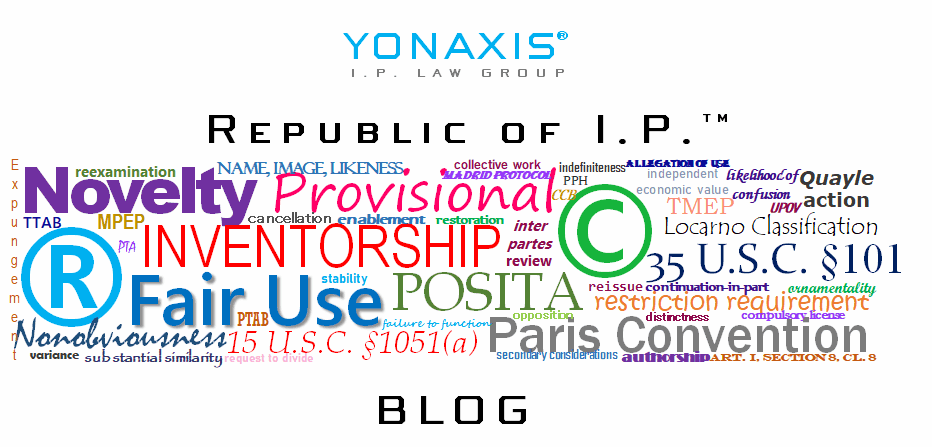By Brent T. Yonehara
On July 30, 2017, the USPTO released its §101 report, Patent Eligible Subject Matter: Report on Views and Recommendations From the Public. The report is a rather dry recitation of the §101 legal framework better suited for a Patent Bar Exam prep course. However, there is an interesting comparative overlay of the patent subject matter eligibility requirements in other jurisdictions around the world, including China, the EPO, Japan, and Korea.
The public comments are rather straightforward, with some saying the Mayo/Alice restrictions on subject matter (PSM) eligibility, and especially the two-step test, are “overly broad” by “devaluing entire patent portfolios,”[1] and “unclear” by creating “unpredictability in the issuance and enforcement of patents.”[2] Another common criticism of the PSM eligibility was that the Alice test stifles innovative activity and ultimately hurts U.S. businesses by tilting patent protection to large companies and away from startups where new innovations in software need patent protection the most.[3]
On the other hand, the new PSM regime had its supporters. One supportive comment was that the new Alice regime weeded out overly broad patents, eliminating “low-quality patents” out of the patent ecosystem (i.e., preemption).[4] Others lauded the new Alice regime as a powerful weapon against patent trolls.[5] A further, and insightful, supporting comment was that foreign companies have a major stake in the U.S. patent system, and that Mayo/Alice is actually favored by these “geopolitical considerations.” Along that same line, if a foreign inventor creating innovations overseas gets that patent protection in, say, Europe, but not here in the U.S. due to the Mayo/Alice regime, that innovation still exists; just the patent protection is not available for it on our shores. This would have the benefit of lowering prices for U.S. consumers since lack of patent protection would open up markets to newer products, thus lowering prices.[6]
The Report ended with legislative recommendations for Congressional action, including proposed §101 amendments from the Intellectual Property Owners Association (IPOA) and the AIPLA.
(Disclaimer: the author is a member of the IPOA)
[1] See Patent Eligible Subject Matter: Report on Views and Recommendations From the Public (“Report”), United States Patent and Trademark Office, July 2017, at 29.
[2] Id. at 29-30.
[3] Id. at 32.
[4] Id. at 24.
[5] Id. at 25.
[6] Id. at 27.
